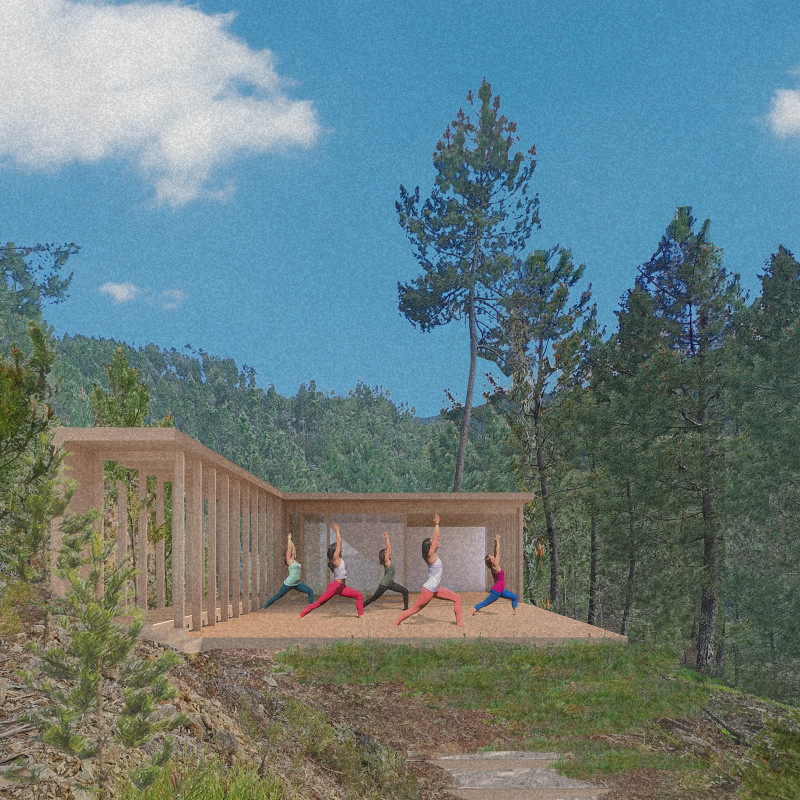5 key facts about this project
The primary function of the Yoga Terrace is to facilitate yoga classes and wellness activities, combining functionality with aesthetic appeal. The terrace provides a tranquil space where practitioners can engage in mindfulness practices while being enveloped by nature. The architectural design incorporates features that support various activities, including open-air sessions, community gatherings, and contemplation of the surrounding vistas.
The project employs several unique design approaches that distinguish it from other similar structures. Notably, the continuous cork flooring offers thermal and acoustic benefits, creating a comfortable surface for practitioners. This choice of material reinforces the connection to nature, as cork is a renewable resource. The structural framework utilizes cross-laminated timber, which allows for expansive, unobstructed views while ensuring sustainability and stability. The incorporation of large glass panels enhances natural light penetration, contributing to an airy and open atmosphere.
Environmental considerations play a significant role in the design of the Yoga Terrace. A water management system is integrated to handle rainfall effectively, minimizing environmental impact. The integration of natural materials like timber and cork aligns the project with sustainability principles, promoting durability and environmental harmony.
The pathways leading to the Yoga Terrace are designed for easy accessibility, enhancing user experience. Constructed with wood that harmonizes with the landscape, these pathways guide practitioners from the main village to the yoga space, seamlessly merging the architectural elements with the setting.
To gain deeper insights into the architectural design, visitors are encouraged to explore architectural plans, architectural sections, and architectural ideas associated with the Yoga Terrace project. This exploration will provide a thorough understanding of the design's functional aspects and its innovative approach to integrating architecture with nature.


























